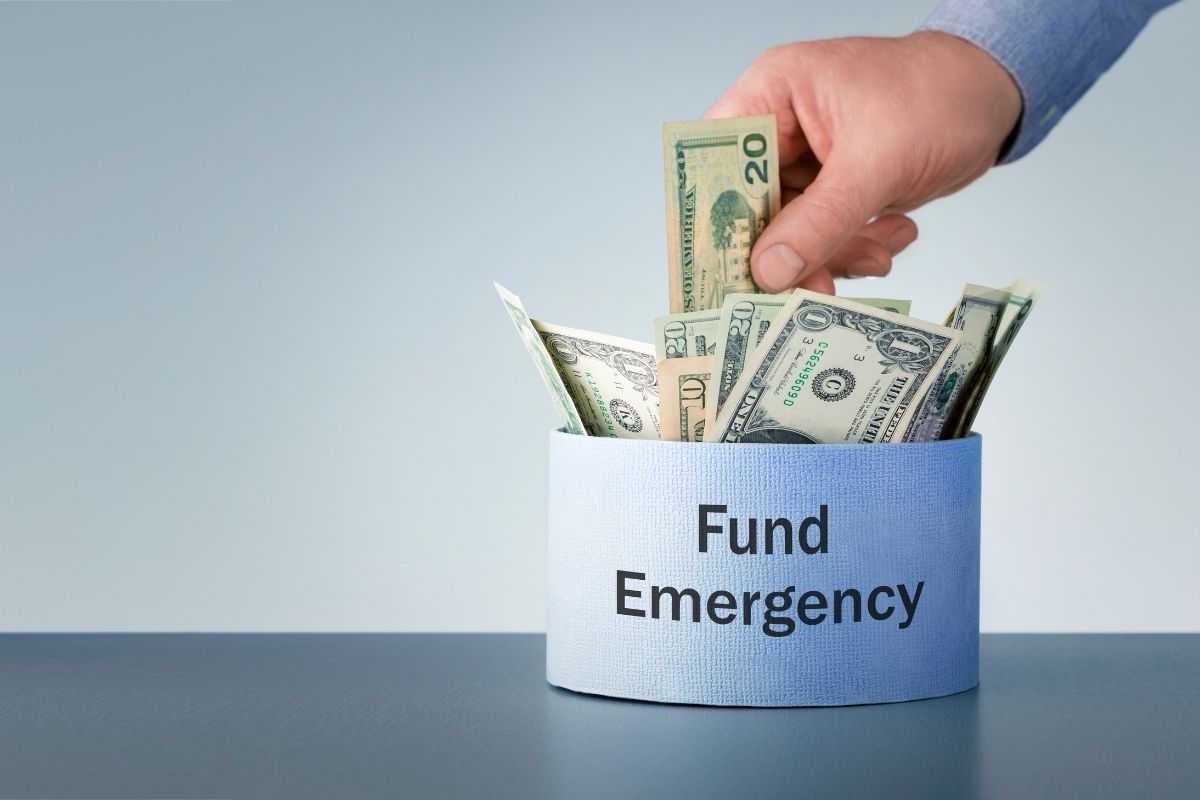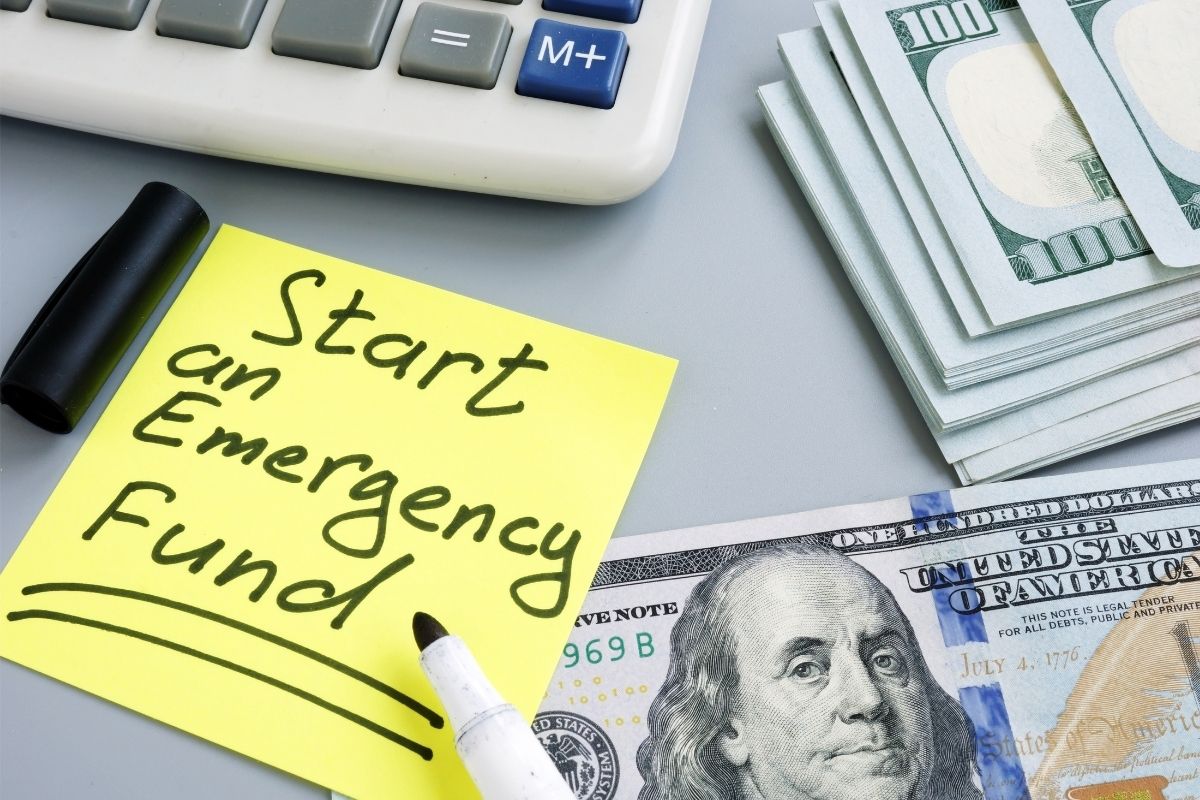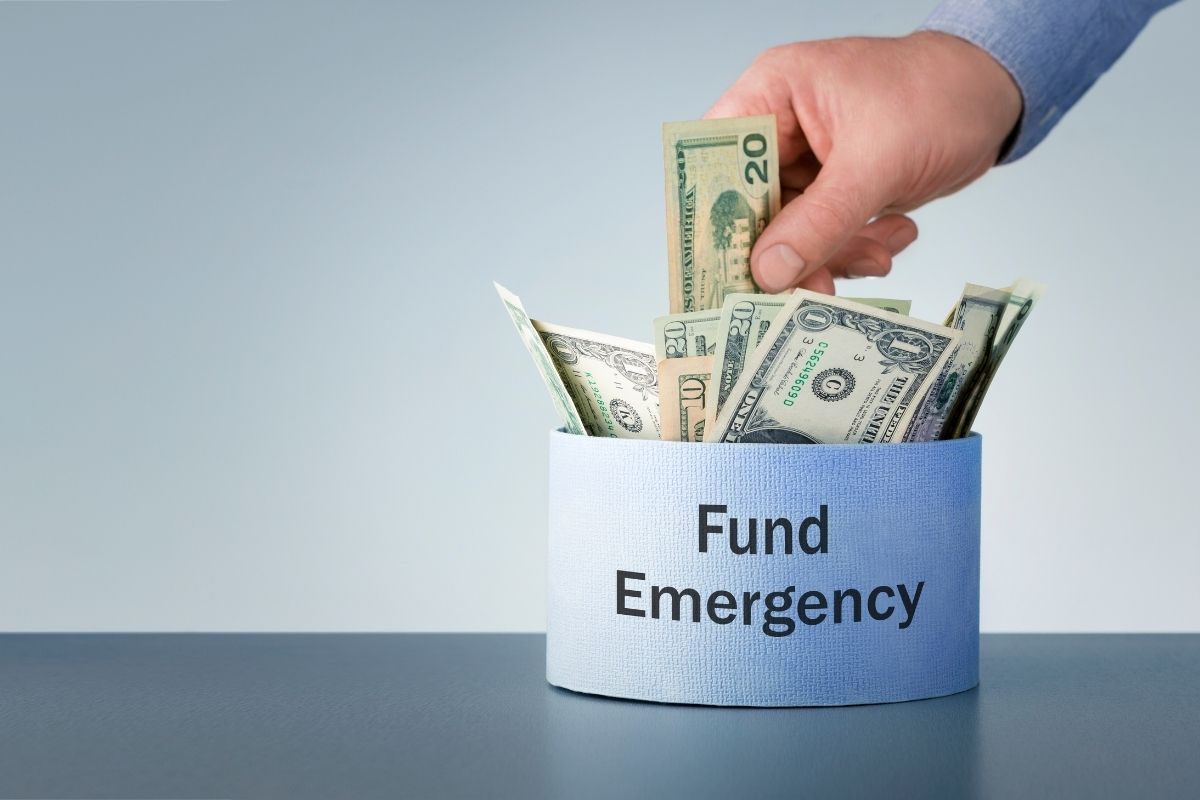An emergency fund is a great way to save for unexpected expenses. Things may be going great right now, but you never know what the future may hold.

Unexpected events such as a house repair, a car breakdown, or a job loss can come out of the blue at any time, and if you are not financially prepared, they can land you in serious trouble, even if you feel financially stable currently.
Having an emergency fund is about preparing for the future so that if the worst were to happen, you can handle what comes your way and protect yourself.
Best kept aside in a savings account or in a place that is easily accessible if you need it, an emergency fund is a money supply that you collect out of the monthly budget that you do not touch in your everyday life.
The aim is to have it be a relatively low cost that doesn’t affect your everyday life and still leaves you with enough money in your financial budget to provide for all of your regular expenses such as bills, food, rent, or mortgage payments.
It shouldn’t put you at any risk of creating extra debts, but rather be there as a safety net if the unthinkable were to happen.
If you don’t already have one, now is the time to start saving, but that begs the question, what should you put into your emergency fund?
An emergency fund is a savings account or investment portfolio that you build over time. The goal is to have enough money saved up to cover at least three months’ worth of living expenses.
This amount of course will depend on your lifestyle, the number of people in your household that you provide for, and your current income.
Whatever you are earning, you should try to square away a bit every month, even if it is the tiniest amount.
You may not notice it coming out every month now, but over time it can build up to be an important safety net in struggling times.
You might also want to consider putting some money aside for retirement. This is especially important if you plan to retire early, or if you do not have long-term job security for the future.
If previous financial crashes and other market-related disasters have taught us anything, it’s that nothing is permanent and even the most secure-looking job can be taken away at any moment.
You can use your emergency fund as a safety net in case something happens and you need money quickly.
The more you save up, the longer you can support yourself if unforeseen expenses or circumstances come about in your life.
What Is An Emergency Fund Used For?
An emergency fund can be used for many different purposes. You may use it to:
Cover short-term needs such as car repairs or medical bills and other financial emergencies.
Pay down high-interest debts like credit cards in order to secure a better financial future in the long term.
Save for long-term goals like a direct deposit for buying a home and reducing expenses over a long period of time.
You should aim to have emergency savings that are the equivalent of three months of expenses for your household, in case of job loss, unplanned expenses, or financial hardship.
When Should I Start Saving Money For My Emergency Fund?
Ideally, you’ll set up your emergency savings before you go into debt. But if you find yourself with too much debt, you can still start building your emergency fund right away.
The sooner you start saving, the more likely you are to reach your financial goals.
The best thing about having emergency savings is that it doesn’t require any effort on your part. All you have to do is sit back and wait for the money to come in!
How Much Should I Save Each Month?

As mentioned above, you can use your emergency savings to pay down high-interest debts such as a credit card.
This means you’ll probably want to save around $100 per month.
That amount could grow depending on how much money you are making and how much of your monthly budget you are willing to put away to save money for the future.
Your savings goal will depend on your financial situation and what emergency savings you can afford to put away without putting yourself in a bad financial position currently.
Make yourself a monthly budget of all of your current expenses, such as your non-negotiable bills, debt payments, and groceries. If you have any money left over, this could go straight towards your emergency fund.
It can be easy to fritter this money away if you have the option, but by saving for a true emergency or having a rainy day fund, you can prevent a tough time turning into a nightmare situation where you can’t cover your regular monthly expenses.
What If I Can’t Save Anything On My Current Budget?
With prices soaring and wages seemingly going nowhere, it can feel impossible to get by, let alone think about saving for the future.
Taking proactive steps however can save you a lot of stress and anxiety down the road, so here are a few steps you can take in order to have some leftover money at the end of the month for building up an emergency savings pot:
- Look at where you can cut costs currently- are you paying more than you need to for bills or groceries? Hunt for the best deals available for you for things like your cell phone bill, weekly food shop, or energy supplier- you may be surprised what a few dollars a month adds up to when you are looking for the cheapest option.
- Supplement your income- it can seem impossible, but if you can take on an extra shift, try to do an extra hour a week, or create a side hustle to supplement your income. You can use these additional funds to support yourself financially if an unexpected emergency were to occur.
- Let your money work for you- if you do have any savings, or a monthly income in a bank, have a look at switching to a high-yield savings account or for any offers to get you started in your money-saving journey. Some banks offer introductory rates that can help you build on your financial capital over time, especially if you don’t plan on taking it out often. Be sure however to keep track of when these good rates change, however, and make sure not to join one that charges you extra fees.
Final Thoughts
An emergency fund is a great way to relieve the financial strain on yourself in the future.
It shouldn’t be a savings amount that means you struggle day-to-day, but should be enough that you can support yourself when things get hard or an unexpected emergency arises.
You can’t see into the future, but you can help your future self plan for the unexpected.
Financial Disclaimer
This post contains sponsored advertising content. This content is for informational purposes only and not intended to be investing advice.
The investing information provided on this page is for educational purposes only. compundingstacks.com does not offer advisory or brokerage services, nor does it recommend or advise investors to buy or sell particular stocks or securities.
The owner(s) of this blog is compensated to provide opinion on products, services, websites, and other topics. The owner(s) may be compensated if you click on a provided link and purchase or sign up for a service. Any product claim or advice about a product or service should be verified with the manufacturer, provider, or party in question. Copyright Compounding Stacks © 2022
- Is Coinbase Safe For Beginners? - March 25, 2022
- Are Penny Stocks Good For Beginners? - March 25, 2022
- Why You Shouldn’t Save Your Money In A Bank? - March 25, 2022

